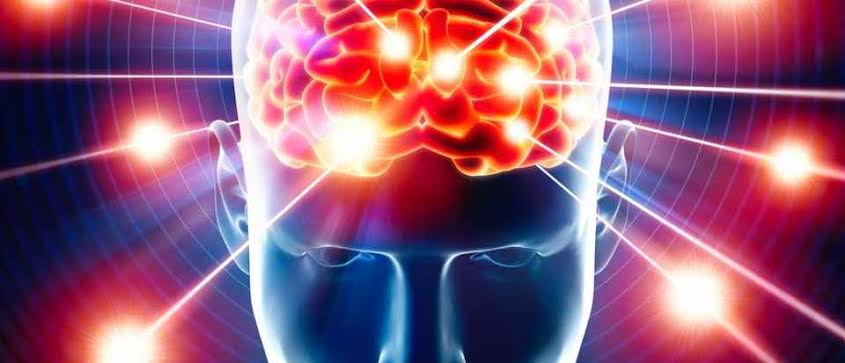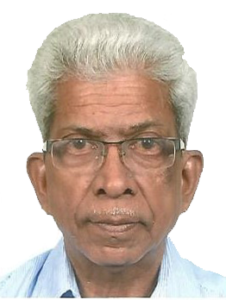HIGHER THE INTELLIGENCE, LARGER THE BLIND SPOT?

Another masterly and thought-provoking article by Joseph Mani, the famous writer of the book Beyond God and Scriptures.
He poses the question why highly intelligent people had / have intellectual blind spots. For example Steve Jobs refusing to go in for surgery of pancreatic cancer as per his doctors' advice and insisting that only herbal remedies, spiritual healing and a strict diet of fruit juice would cure him. Had he been more rational and listened to his doctors, perhaps he would have been alive today. Two economists, Kahneman and Tversky identified some of the reasons for such irrational behaviour (called ‘disrationalia’) of otherwise intelligent people. Psychologists have now confirmed by multiple rigorous experiments that very many people fall into these ‘intelligence traps’.
He further writes that accepting unquestioningly the authority of a leader, preacher, guru or book relieves us of the burden of thinking for ourselves for it is easier to pass on that task to someone else. Cicero, Galileo and others repeatedly exhorted us to use our own reasoning ability. There are others who have warned us against the danger of using our reason – Saint Augustine and Martin Luther, among others.
He says the good news is that the skills of critical thinking, skills for acquiring ‘evidence-based wisdom’ can be learned and cultivated. Let the readers use their own power of reasoning and agree or disagree with Joseph Mani. Isaac Gomes, Associate Editor, Church Citizens' Voice.
JOSEPH MANI
After Thomas Alva Edison invented the light bulb, he had the noble vision of lighting every home in America by electricity. This meant transmitting electricity over long distances from the generating station. Doing this as Direct Current (DC) was prohibitively expensive. George Westinghouse had shown that transmitting electricity as Alternating Current (AC) was far cheaper. Edison was convinced that AC was dangerous and would often cause death by electrocution. Any amount of evidence by Westinghouse and Edison’s own brilliant assistant Nikola Tesla would not shake his conviction. To prove his point that AC will lead to disaster, Edison would arrange to have houses using AC burned down!
Arthur Conan Doyle would spend his day-time creating Sherlock Holmes, the master of using logical deduction from observed facts to arrive at a conclusion. Conan Doyle would spend most of the night propagating occult sciences. He was convinced that his wife Jean was a medium who could communicate with souls from the other world. Harry Houdini was mourning his mother who had passed away recently. Conan Doyle invited Houdini to his hotel room. Ms Jean brought out her board and called up the spirit of Mrs. Houdini and furiously wrote twenty closely written pages of messages from the spirit. Houdini was skeptical. He pointed out a few inconsistencies: 1. How come his mother who was a devout Jew agreed to speak under the sign of the Cross?, 2. How is that his mother, a polish immigrant, who didn’t know a word of English while she was alive, gave her messages to Ms Jean in perfect English?, 3. How strange that his mother who never once forgot her son’s birthday, didn’t mention that it was his birthday? Conan Doyle brushed aside all such objections. Later he went to the extent of claiming that the escape-feats of Houdini were because he was under the power of a “dematerializing and deconstructing “ spirit!
The name of Albert Einstein is synonymous with genius. Einstein spent part of the last thirty years of his life trying to prove that quantum physics, which he himself had initially proposed, was wrong because it went against some of his own theories and convictions. Einstein refused to look at overwhelming mathematical and experimental evidence that quantum mechanics works. He died as a disheartened and isolated man who, in his own words, “must seem like an ostrich who forever buries its head in the relativistic sand in order not to face the evil quanta.”
Nobody can doubt the intelligence and creativity of Steve Jobs. He was diagnosed with pancreatic cancer. His doctors told him that a surgery would remove the cancer. Jobs would have nothing of it. He insisted that herbal remedies, spiritual healing and a strict diet of fruit juice would cure him. By the time he agreed to surgery, it was too late. Had he been more rational and listened to his doctors, perhaps he would have been alive today.
We wonder why such highly intelligent people had such intellectual blind spots.
Surprisingly, it was two economists, Kahneman and Tversky who identified some of the reasons for such irrational behaviour of otherwise intelligent people, called ‘disrationalia’. (Daniel Kahneman got the Nobel in Economic Sciences in 2002). Psychologists have now confirmed by multiple rigorous experiments that very many people fall into these ‘intelligence traps’.
Here are some of these traps and experts’ suggestions to avoid them.
My-side Bias (Motivated Reasoning): This is the tendency to accept only those arguments and evidences that confirm our existing beliefs and reject those that cast doubt on our beliefs. Very intelligent people often use their intelligence to twist contrary evidence to confirm their existing point of view. A friend of mine insisted that the Bible was divinely inspired. I quoted chapter and verse from the Bible to show that there are inconsistencies, contradictions and falsehoods in the Bible. He said “That is what you don’t understand. If there were only truths in the Bible, where is the merit in accepting it as a holy book? So God purposely included inconsistencies, contradictions and falsehoods in the Bible so that in spite of these you may believe and so earn more merit.” The great nineteenth-century psychologist William James said “A great many people think they are thinking when they are merely re-arranging their prejudices.”
To counteract this tendency: First, we need to become aware that we, like most people, have this tendency. Second, actively seek out information or facts that may disagree with our notions. This is not easy because this will create cognitive dissonance. But unless we do this, we will remain bound by our belief-chains more tightly than Houdini in his chains.
Unshakable Convictions: It is comforting to think that our convictions are rock-solid. Carl Jung said “I don’t believe God exists, I know.” Good for Jung. Such convictions give certainty and peace. So does the grave. But do we want the peace of the grave while still alive? It is disconcerting to accept, even to ourselves, that some of our beliefs could be wrong. This becomes even more difficult if we have tied our self-identity to these convictions or beliefs. But unless we open ourselves to such a possibility, we will stop growing.
Benjamin Franklin, the great diplomat and conciliator, had two countermeasures against this tendency: One, do a ‘mental algebra’. This means noting down all the pros and cons of a course of action or all the evidence and arguments that support our belief and those that militate against our conviction. Once we do this we become aware that there could be another point of view, that there could be alternate explanations. We may become aware that ours is one of the ways but not the only way. In an experiment, students who were told that this is ‘one’ way to solve an equation or this is ‘one’ explanation for a phenomenon performed better than students who were told this is ‘the’ way or ‘the’ explanation.
Franklin’s second practice was to avoid all dogmatic words and phrases that denoted complete certainty – words like ‘certainly’, ‘undoubtedly’, “I am sure” etc. Richard Feynman had the same attitude. He said “I am not absolutely sure of anything.”
Unquestioned Acceptance of Authority: A Christian preacher tells us that Christ walked on water. A BJP leader tells us that the arrows Arjuna shot carried nuclear warheads. Both are based on the authority of a book or its interpretation. While there is no way to prove that either event did not happen and believing in the divine powers of Christ or Krishna is not inherently irrational, a healthy dose of skepticism is in order before accepting either claim. Accepting unquestioningly the authority of a leader, preacher, guru or book relieves us of the burden of thinking for ourselves. Using our own reason is mentally tiring. It is easier to pass on that task to someone else. Cicero, Galileo and others warned us against not using our own reasoning ability. There are others who have warned us against the danger of using our reason – Saint Augustine and Martin Luther, among others. Then there are those who would give us ‘rational’ arguments why we should not use our reason in everything, that there are realms beyond reason. These take the form of “Reason is not everything.”, “Isn’t it presumptuous on your part to think that your puny mind can understand everything?”, “Normal rules of evidence and logic do not apply here.”, “There is a Superior Intelligence whose workings you cannot comprehend.”
The response to such people is to accept that our intelligence is certainly limited, that we don’t have explanation for everything as of now. We recognize that knowledge is getting outdated fast – the half-life of knowledge (the time it takes for half our knowledge to become obsolete) is estimated to be five years today compared to thirty five years in the 1920s. We also accept that humans may never reach a stage where we can explain everything. But that doesn’t mean we have to blindly accept the authority of someone because there is no Person, Institution or Book that has proved to be infallible. Einstein refused to accept evidence against his convictions because he thought he was the authority on physics. He seems to have realized this. He said “As if to punish me for my disrespect for authority, I have been made an authority myself.”
We must also ask them “How come you seem to know so much about this Superior Intelligence which you say is incomprehensible”?
Availability Fallacy: We take it as true if something is presented to us in a familiar or vivid way. Many people overestimate the risk of flying or the chance of being killed by terrorists though flying is the safest mode of transport and an American has a 3,000 times greater probability of being killed by stepping into a car than by a terrorist’s bomb. This is because plane crashes and terrorist attacks are presented to us in a dramatic and emotive way. Many people, when asked “How many pairs of animals did Moses take into the ark?” would say “One pair” while the correct answer is “None”. We are so familiar with the words ark and animals that we forget that it is Noah and not Moses who, if at all, took any animals into the ark.
The Framing Fallacy: We form our opinion based on how the information is phrased. We e are more likely to endorse the use of a drug if we are told that it would save 200 people out of 600 who are treated with it (gain-framing) than if we are told that 400 people would die even after being treated with the drug (loss-framing), though both statements mean exactly the same thing. We are more likely to buy a food item if the advertisement says “95% fat-free” than if it said “5% fat”. Is it OK to smoke while praying? Certainly not, it is a sacrilege to smoke while praying. Is it OK to pray while smoking? Certainly, you can pray anytime.
The Gambler’s Fallacy: If we get Heads in five consecutive tosses of a coin, we are likely to put all our money on the next toss turning out to be Tail. In 1913 in Mote Carlo the roulette wheel fell twenty six times on black and visitors lost millions as the bet on red escalated because everyone was convinced that after so many blacks in a row, the next would be red. A couple who have three daughters in a row are convinced that the next child will be a boy. They may end up with a girls cricket team! We forget that random events have no memory, that what happens next has nothing to do with what happened previously.
Appeal-to-Ignorance Fallacy: This goes like this: Since you don’t have an explanation, you have to accept my explanation. You cannot explain how the Egyptians built the pyramids, so you must agree with me that they were built by extraterrestrials. Related to this is the fallacy which says that if you can’t prove something does not exist, it must exist. This is a favourite argument of theists. Since it cannot be conclusively proved that God does not exist, He must exist. It misses the point that a negative cannot be proved. Nobody can prove that God does not exist just as nobody can prove that Jupiter does not control our lives. Absence of proof may not be proof of absence, but it is not proof of presence either.
The way to protect ourselves from these fallacies is to consciously remember that these pitfalls exist. In this age of fake news, we need to be specially aware of these fallacies because the ‘My-side bias’ compounds the problem.
If we fall into some of these intelligence traps we are in respected company; greater minds than ours have fallen into them. In fact, it is found that the higher the intelligence the larger the intellectual blind spots. As Houdini said “Greater the brain, easier to mystify him.”
Ultimately the way to avoid these and other intellectual pitfalls is to have an actively open-minded thinking, curiosity, intellectual humility and a tolerance for ambiguity. It may also be useful to ask the following questions before we accept any claim:
- Who is making the claim? What are their credentials? What might be their motives to make me believe this? If what this person said was contrary to my conviction, would I give his view the same weight?
- What are the premises of the claim? How might they be flawed?
- What are my own assumptions? How might they be flawed?
- What are the alternate explanations for their claim?
- What is the evidence? How does it compare to the alternate explanation?
- What further information do I need before I can make a judgment?
And the good news is that the skills of critical thinking, skills for acquiring ‘evidence-based wisdom’ can be learned and cultivated (even by those of us who are highly intelligent!).

















